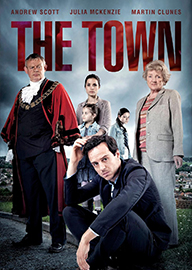Playing Nice
- 7.1
- Drama
- 2025
- 1h
- 14+
A gripping drama that explores the boundaries of morality, relationships, and truth. When two families cross paths in an unimaginable situation, secrets unravel, and ethical dilemmas arise, testing their resilience and humanity. A powerful tale of emotional depth and suspense, "Playing Nice" delves into the complexities of human connections and the choices that define us.

















Comments
0Reviews
0Summery
1Please sign in to comment.
Please sign in to review.
Playing Nice (2025) is a gripping psychological drama that delves into the complexities of parenting, morality, and the delicate web of human relationships. Adapted from J.P. Delaney’s bestselling novel of the same name, the film weaves an emotionally charged narrative that keeps audiences on the edge of their seats, exploring how far one would go to protect their family when faced with unimaginable dilemmas. With its intense performances, razor-sharp script, and emotionally charged storyline, Playing Nice emerges as a standout drama in contemporary cinema.
The story follows Pete and Maddie Riley, a seemingly happy couple living a quiet life in suburban London with their two-year-old son, Theo. Their world is turned upside down when Miles Lambert, a stranger, arrives on their doorstep with an astonishing revelation: their son was swapped at birth with Miles and his wife’s biological child. What begins as a cordial, albeit shocking, interaction soon spirals into a complex and sinister battle of wits, as the two families grapple with the fallout of this life-altering discovery. At its core, Playing Nice explores the question of identity and parental love: Is parenthood defined by biology, or is it forged through the bonds of time, care, and sacrifice? Pete and Maddie’s struggle to hold on to Theo amidst mounting legal and emotional challenges forms the heart of the narrative. Their desperation to maintain their family unit contrasts starkly with Miles and his wife, who, beneath their polished facade, harbor darker motives that are gradually revealed.
The tension escalates as Pete and Maddie uncover disturbing truths about Miles’s past, including his manipulative tendencies and his obsession with control. These revelations turn what initially seems like a tragic accident into a chilling psychological showdown, where every interaction is laden with undercurrents of mistrust and fear. The film's ability to shift seamlessly between heartfelt drama and nerve-wracking suspense keeps viewers deeply engaged. The performances in Playing Nice are nothing short of exceptional. The cast brings to life the emotional depth and moral ambiguity of the characters, ensuring that the story resonates on a deeply personal level. Pete is portrayed with a poignant mix of vulnerability and determination, capturing the anguish of a father fighting to protect his family. Maddie, on the other hand, emerges as the emotional anchor of the story, her quiet strength and unwavering love for Theo shining through even in the darkest moments. Miles is the quintessential antagonist, exuding charm and menace in equal measure, his chilling demeanor underscoring the psychological warfare at play.
Director Sophie Barnes masterfully balances the film’s dual tones, crafting a narrative that is as emotionally resonant as it is thrilling. The cinematography employs a muted color palette to reflect the underlying tension and moral gray areas, while the intimate framing of scenes draws audiences into the characters’ emotional turmoil. The script, co-written by Barnes and J.P. Delaney, remains faithful to the source material while enhancing the narrative with cinematic flair. Beyond its gripping plot, Playing Nice raises profound ethical questions about the nature of truth, justice, and the lengths one is willing to go to protect what they hold dear. The film delves into the psychological impact of the situation on both families, highlighting the fragility of trust and the devastating consequences of deception. It invites viewers to consider their own moral boundaries and how they would navigate such an impossible predicament.
The film’s pacing is expertly handled, with each revelation and twist unfolding organically, heightening the stakes without feeling contrived. The tension builds to a crescendo in a riveting courtroom showdown, where the battle for custody takes center stage. Yet, even as the legal proceedings provide a semblance of resolution, the emotional fallout lingers, leaving a lasting impact on all involved. The musical score, composed by Rachel Portman, enhances the film's emotional depth, blending haunting piano melodies with subtle orchestral arrangements that underscore the story’s themes of love, loss, and resilience. The score mirrors the narrative's ebb and flow, its haunting beauty amplifying the emotional stakes.
In the end, Playing Nice transcends its genre conventions to deliver a powerful exploration of human resilience and the enduring bonds of family. It is a story of love tested under extraordinary circumstances, a tale that forces its characters—and its audience—to confront their deepest fears and hardest truths. With its compelling narrative, outstanding performances, and thought-provoking themes, Playing Nice is a cinematic experience that lingers long after the credits roll. It is a must-watch for those who appreciate stories that challenge the heart and mind in equal measure.